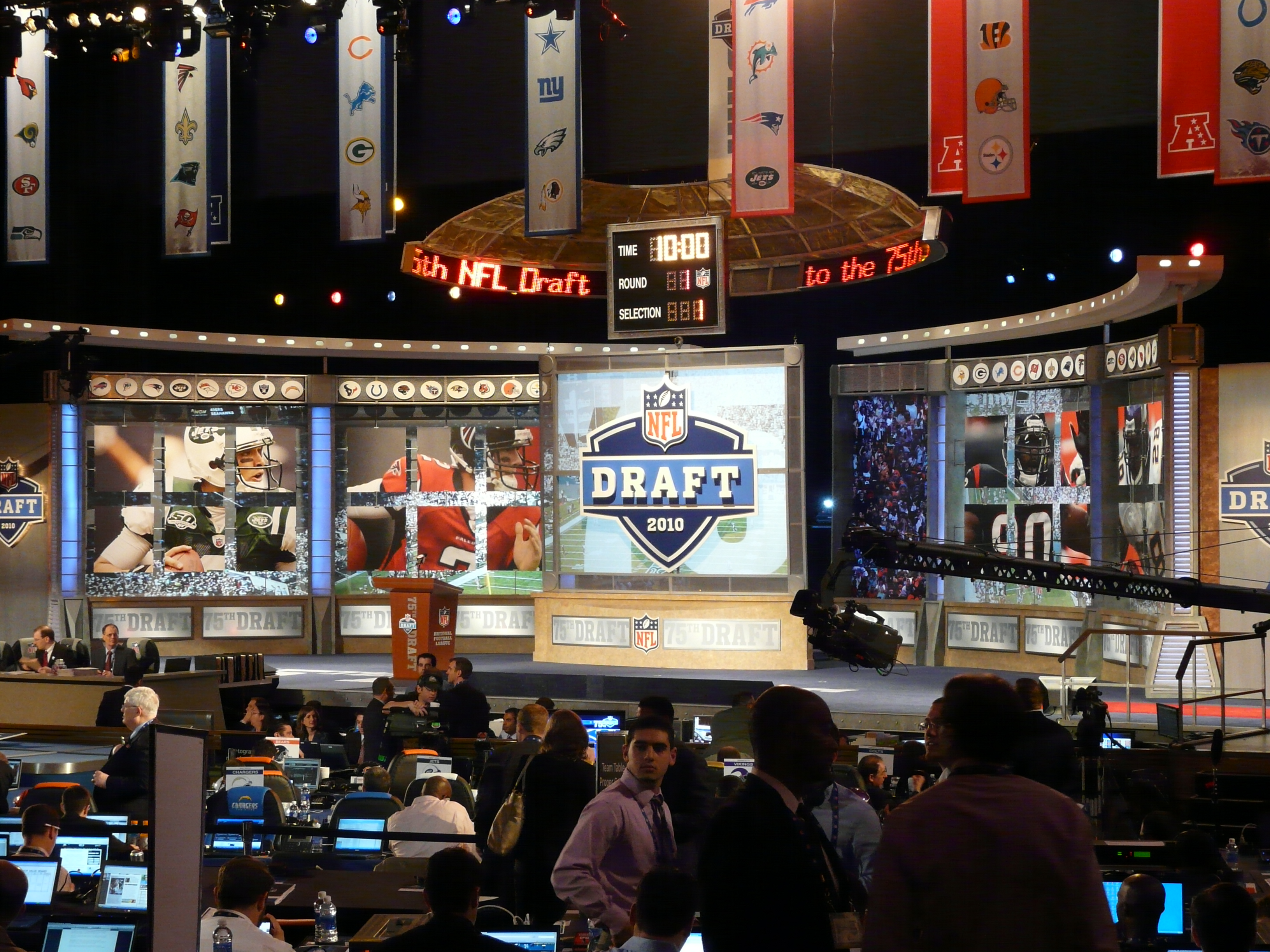
When the NFL shows its video interview with Ray Rice to teams this month, it ought to schedule a special session for owners and front-office staff.
Because the message hasn’t been getting through.
That much was clear during the draft last week, when at least a half-dozen players who have been accused of physical or sexual assaults were welcomed to the NFL with little more than a shrug by their new teams. As was the case with Greg Hardy, Ray McDonald and Josh Brown, some owners and executives continue to thumb their noses at the league’s efforts to address violence against women, deciding they can live with a history of abuse so long as a player will help them win games.
“I think we all have been accused of things,” Jacksonville Jaguars general manager Dave Caldwell said after drafting Dede Westbrook, whose talent as a wide receiver – he was a finalist for the Heisman Trophy – apparently outweighed his two arrests for assaulting the mother of his children.
“Not all of us,” Caldwell added, “but many of us have been accused of things.”
Not only is that wildly untrue, it’s offensive to all of the men in the NFL who haven’t resorted to violence and are working hard to end the cycle of abuse. But that minimizing of Westbrook’s behavior gives a stark reminder of just how ingrained indifference to women is in the NFL and, three years after Rice, how much work there is still to be done.
“I don’t think that the teams take domestic violence as seriously as they should,” said Kim Gandy, president and CEO of the National Network to End Domestic Violence.
“Football is a business and those teams are in the business of making money for their owners,” Gandy said. “All things being equal, they’re going to hire the players, draft the players that will run faster and throw farther and win games for them.
“Unless the fans and the media who influence the fans react, there’s no incentive for the teams.”
And that is the crux of the problem.
Post-Rice, NFL Commissioner Roger Goodell was shamed into overhauling the discipline system for domestic violence, including increasing the “baseline” suspension to six games. Potential draft picks convicted of domestic abuse, sexual assault, weapons-related charges or other violent crimes are now barred from the combine and other NFL-sponsored events.
But there is no comparable penalty for a team that drafts or signs a player with a history of abuse. No repercussions that will at least make an owner or GM pretend he cares how someone wearing his uniform and representing his team treats women.
Gareon Conley, taken by the Raiders in the first round, was to meet with police Monday about sexual assault allegations against him. New Cowboys cornerback Jourdan Lewis faces a July trial on domestic abuse charges involving his girlfriend.
Domestic abuse charges against Westbrook and Davon Godchaux, the Miami Dolphins’ fifth-round pick, were eventually dropped. That’s a common occurrence in domestic violence cases, and says more about the difficulty in breaking the cycle than it does about the strength of the charges.
Joe Mixon and Caleb Brantley’s cases did not involve intimate partners and, as such, are not domestic abuse. But the shocking level of violence displayed toward women cannot be ignored; Mixon broke several bones in a woman’s face and Brantley allegedly hit a woman so hard he knocked a tooth out and caused her to lose consciousness.
I’m not suggesting any one of these players should have been blackballed. That’s neither fair nor reasonable.
But just as they will pay a heavier price with Goodell if they get in trouble again, so, too, should the teams that take them. Make it severe enough – a lost draft pick, a fine – that teams will think long and hard about their choices and, once made, provide their newest player with whatever resources he needs to ensure success for him and his family.
Otherwise, all of the other good work done by the league rings hollow.
By Nancy Armour
This article was republished with permission from the original author and 2015 Ronald Reagan Media Award recipient, Nancy Armour, and the original publisher, USA Today. Follow columnist Nancy Armour on Twitter @nrarmour.